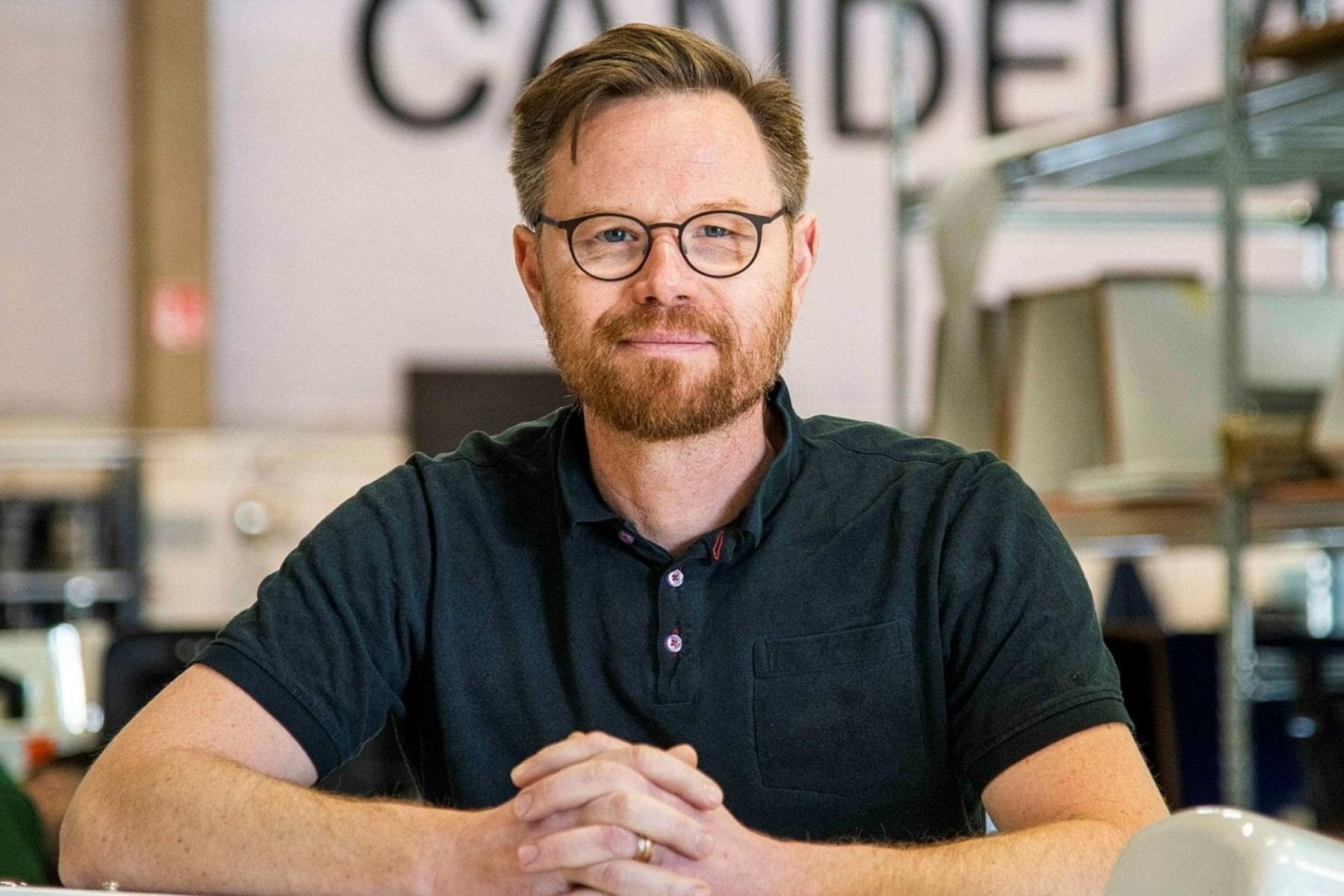Is flight shame over for impact startups?
Some impact investors and sustainability workers appear to be ramping up business travel. So is flight shame out of fashion and what are the consequences, asks Impact Loop's Maddy Savage.


Near-horizontal snow and ice-cold winds battered my face as I sprinted into a taxi alongside three other women whose flights had been cancelled in the wild weather.
We were all trying to get back to Stockholm from Skellefteå, northern Sweden, where we’d attended a conference focused on social and environmental sustainability.
"I knew I should have travelled by train," I huffed and puffed out loud, publicly venting my frustration – and the sense of bad karma I felt for booking a domestic plane ticket (a decision I hadn’t made lightly).
I expected the comment to be met with nervous laughter or perhaps a group discussion about why my new travel companions – and the organisations they represented – had also chosen to book a one-hour flight.
But neither of those things happened. Instead, there was talk about trains also being impacted by the snow, pride that we were carpooling back to our hotel rather than sitting in separate taxis, and a discussion about the value of in-person collaboration at conferences, post-pandemic.
The Greta effect
Spool back just five years, and Sweden was the epicentre of the global flight shame phenomenon.
Greta Thunberg popularised the Swedish word for the concept, flygskam, and famously crossed the Atlantic by boat to reach a UN summit on climate change in New York. Facebook groups for tourists seeking to swap planes for trains for their summer holidays mushroomed. Global media reported on flight shame grounding Swedish business travel. Rail ticket sales surged while domestic air passengers dropped by 9 percent in 2019 compared to the previous year.
Greta Thunberg popularised the Swedish word for the concept, flygskam
Yet in 2024, flying to conferences, networking events, or business meetings—even if they’re connected to social or environmental sustainability—seems to have become more socially acceptable again, both in Sweden and across Europe.
Earlier this year, I met a UK-based climate activist who admitted she occasionally flew within Europe to get her message across to a wider audience.
Others working in the impact scene have made even bolder public comments.
"Every flight increases my carbon footprint, and no, I’m not ashamed of it—not one bit," wrote Munich-based Daria Saharova in a controversial article for German magazine Strive this summer.

Not ashamed of flying
A founder and partner at the World Fund, one of Europe’s largest venture capital funds, Saharova’s job revolves around startups developing solutions to the climate crisis. Her article was a response to criticism over her frequent Instagram posts featuring photos taken from planes.
Saharova’s argument? Only systemic industrial change can solve the climate crisis. In that context, she claims, small individual actions—like taking a train instead of a plane—won’t change the bigger picture.
Instead, Saharova advocates for increased investment in tech-based solutions, to eventually make flying more climate-friendly. Vaeridion, based in her home town, is developing electric planes it hopes will be able to fly distances of 500km, with other fossil-free players including Slovenian startup Pipstel and Gothenburg-based Heart Aerospace, which expects to begin running commercial flights by 2030.
Saharova also argues the aviation sector plays a role in supporting other more general business functions, such as “creating jobs, connecting people across borders, making our societies more diverse, and providing access to knowledge and culture.”

"Everybody is flying more"
There’s little data specifically tracking how much workers in the impact sector are flying compared to other business travellers. However, tourism and climate change researcher Stefan Gössling suggests Saharova’s attitude reflects a broader trend.
"Everybody is flying more," says Gössling, who is based at Linnéus University in southern Sweden.
Passenger traffic at European airports surpassed pre-pandemic levels in the first half of this year, according to data from the European airport trade body ACI Europe. This wasn’t just driven by rising tourism. European companies sent employees on trips more frequently between January and June compared to the same period in 2023, with a 1.6 percent increase in tickets sold.
Where anxieties dominate, individuals have difficulties seeing positive visions and believing in the future
The shaky global economy and inflation have clearly led many businesses to justify air travel as a cost-saving measure. But Gössling believes broader fears sparked by wars and political polarisation have also distracted many of us.
"Where anxieties dominate, individuals have difficulties seeing positive visions and believing in the future—a precondition for any willingness to act on climate change," he argues. "In such a situation, you will do whatever is important to you and not care about the consequences."

But others within the European impact sector argue that flight shame continues to influence many founders, who in turn hope to inspire others.
"I’m seeing more and more people posting on LinkedIn that they are taking the train, being really proud about it, and being really vocal about it," says Evoléna de Wilde d'Estmael, the Berlin-based founder of Faircado, an AI assistant for second-hand shopping.
But others within the European impact sector argue that flight shame continues to influence
Her company’s policy is to avoid flying if a business destination can be accessed within a 12-hour train journey. She also sees this as a productivity boost, with rail travel typically cutting down on passenger queuing time and offering more reliable WiFi.
Other impact space players are offering incentives to businesses who can prove their employees are travelling more sustainably. In October, the Norrsken Foundation offered full refunds on tickets for its Impact Week in Barcelona for anyone who could prove they had travelled by train. In France, several companies including social impact startup Vendredi give extra leave days to workers who take the train rather than flying when they go on vacation.
De Wilde d'Estmael is deeply critical of Saharova’s argument that these sorts of individual or company-based actions have limited impact (despite her business, Faircado receiving funding from World Fund, where Saharova works).
“Every big societal change started with one person—and then created a movement,” she argues.
An ongoing tension
So, is the flight-shame era over for impact startups? The answer isn’t clear-cut.
What’s undeniable is there remains a tension between the practicalities of flying (to reap the benefits of face-to-face meetings and events, while saving time and often money on travel), and the ideals of the impact sector.
If you’re reading this, chances are you believe that impact businesses can help change the world. But as 2025 looms, the competing pressures of climate responsibility and the realities of global business are sharper than ever.
Aviation accounts for around two percent of global energy-related carbon emissions, according to the International Energy Agency. Researcher Stefan Gössling warns that, in the absence of imminent electric planes, air transport will only become more significant in the climate crisis as other sectors reduce their emissions. "We are at the point where every ton of CO2 brings us closer to the tipping points, and hence air transport, as the highest-emitting human activity, is particularly problematic."
For impact startups – and impact journalists – the push and pull between the benefits of flying and its undeniable costs also reflects the broader complexities of balancing progress with responsibility. As 2025 approaches, how will you navigate these trade-offs in a way that aligns with your values?
Get full access to Europe's new platform for impact news
- Quality journalism, interviews, investor profiles and deep-dives
- Daily newsletter with top stories, latest funding rounds and roundup to keep you in the loop
Keep reading – get in the loop!
- Håll dig i loopen med vårt dagliga nyhetsbrev (gratis!)
- Full tillgång till daglig kvalitetsjournalistik med allt du behöver veta inom impact
- Affärsnätverk för entreprenörer och investerare med månatliga meetups
Fortsätt läsa – kom in i loopen!
- Håll dig i loopen med vårt dagliga nyhetsbrev (gratis)!
- Full tillgång till daglig kvalitetsjournalistik med allt du behöver veta inom impact
- Affärsnätverk för entreprenörer och investerare med månatliga meetups








.jpg)
